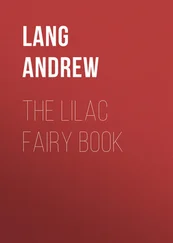Andrew Lang - The True Story Book
Здесь есть возможность читать онлайн «Andrew Lang - The True Story Book» — ознакомительный отрывок электронной книги совершенно бесплатно, а после прочтения отрывка купить полную версию. В некоторых случаях можно слушать аудио, скачать через торрент в формате fb2 и присутствует краткое содержание. Жанр: foreign_antique, foreign_prose, на английском языке. Описание произведения, (предисловие) а так же отзывы посетителей доступны на портале библиотеки ЛибКат.
- Название:The True Story Book
- Автор:
- Жанр:
- Год:неизвестен
- ISBN:нет данных
- Рейтинг книги:3 / 5. Голосов: 1
-
Избранное:Добавить в избранное
- Отзывы:
-
Ваша оценка:
- 60
- 1
- 2
- 3
- 4
- 5
The True Story Book: краткое содержание, описание и аннотация
Предлагаем к чтению аннотацию, описание, краткое содержание или предисловие (зависит от того, что написал сам автор книги «The True Story Book»). Если вы не нашли необходимую информацию о книге — напишите в комментариях, мы постараемся отыскать её.
The True Story Book — читать онлайн ознакомительный отрывок
Ниже представлен текст книги, разбитый по страницам. Система сохранения места последней прочитанной страницы, позволяет с удобством читать онлайн бесплатно книгу «The True Story Book», без необходимости каждый раз заново искать на чём Вы остановились. Поставьте закладку, и сможете в любой момент перейти на страницу, на которой закончили чтение.
Интервал:
Закладка:
Some days after, alleging no reason, he ordered the archers not to sweep. This omission was allowed to pass for several mornings, and then the gaoler demanded Casanova's reason. He answered, that the dust settled on his lungs, and made him cough, and might give him a mortal disease. Laurent, the gaoler, offered to throw water on the floor before sweeping it; but Casanova's arguments against the dampness of the atmosphere that would result were equally ingenious. Laurent's suspicions, however, were roused, and one day he ordered the room to be swept most carefully, and even lit a candle, and on the pretence of cleanliness, searched the cell thoroughly. Casanova seemed indifferent, but the next day, having pricked his finger, he showed his handkerchief stained with blood, and said that the gaoler's cruelty had brought on so severe a cough that he had actually broken a small blood-vessel. A doctor was sent for, who took the prisoner's part, and forbade sweeping out the cell in future. One great point was gained; but the work could not begin yet, owing to the fearful cold. The prisoner would have been forced to wear gloves, and the sight of a worn glove might have excited suspicion. So he occupied himself with another stratagem – the creation, little by little, of a lamp, for the solace of the endless winter nights. One by one, the gaoler himself, unsuspectingly, brought the different ingredients: oil was imported in salads, wick the prisoner himself made from threads pulled from the quilt, and in time the lamp was complete.
The very unwelcome sojourn of a Jewish usurer, like himself captive of the Inquisition, in his cell, forced Casanova to delay his projects of escape till after Easter, when the Jew was imprisoned elsewhere.
No sooner had he left than Casanova, by the light of the lamp constructed with so much difficulty, began his task. Drawing his bed away, he set to work to bore through the plank underneath, gathering the fragments of wood in a napkin – which the next morning he contrived to empty out behind a heap of old cahier books in the corridor – and after six hours' labour, pulling back his bed, which concealed all trace of it from the gaoler's eyes.
The first plank was two inches thick; the next day he found another plank beneath it, and he pierced this only to find a third plank. It was three weeks before he dug out a cavity large enough for his purpose in this depth of wood, and his disappointment was great when, underneath the planks, he came to a marble pavement which resisted his one tool. But he remembered having read of a general who had broken with an axe hard stones, which he first made brittle by vinegar, and this Casanova possessed. He poured a bottle of strong vinegar into the hole, and the next day, whether it was the effect of the vinegar or of his stronger resolution, he managed to loosen the cement which bound the pieces of marble together, and in four hours had destroyed the pavement, and found another plank, which, however, he believed to be the last.
At this point his work was once more interrupted by the arrival of a fellow prisoner, who only stayed, however, for eight days. A more serious delay was caused by the fact that unwittingly a part of his work had been just above one of the great beams that supported the ceiling, and he was forced to enlarge the hole by one-fourth. But at last all was done. Through a hole so thin as to be quite imperceptible from below he saw the room underneath. There was only a thin film of wood to be broken through on the night of his escape. For various reasons, he had fixed on the night of August 27. But hear his own words:
'On the 25th,' writes Casanova, 'there happened what makes me shudder even as I write. Precisely at noon I heard the rattling of bolts, a fearful beating of my heart made me think that my last moment had come, and I flung myself on my armchair, stupefied. Laurent entered, and said gaily:
'"Sir, I have come to bring you good news, on which I congratulate you!"
'At first I thought my liberty was to be restored – I knew no other news which could be good; and I saw that I was lost, for the discovery of the hole would have undone me. But Laurent told me to follow him. I asked him to wait till I got ready.
'"No matter," he said, "you are only going to leave this dismal cell for a light one, quite new, where you can see half Venice through the two windows; where you can stand upright; where – "
'But I cannot bear to write of it – I seemed to be dying. I implored Laurent to tell the secretary that I thanked the tribunal for its mercy, but begged it in Heaven's name to leave me where I was. Laurent told me, with a burst of laughter, that I was mad, that my present cell was execrable, and that I was to be transferred to a delightful one.
'"Come, come, you must obey orders," he exclaimed.
'He led me away. I felt a momentary solace in hearing him order one of his men to follow with the armchair, where my spontoon was still concealed. That was always something! If my beautiful hole in the floor, that I had made with such infinite pains, could have followed me too – but that was impossible! My body went; my soul stayed behind.
'As soon as Laurent saw me in the fresh cell, he had the armchair set down. I flung myself upon it, and he went away, telling me that my bed and all my other belongings should be brought to me at once.'
For two hours Casanova was left alone in his new cell, utterly hopeless, and expecting to be consigned for the rest of his life to one of the palace dungeons, from which no escape could be possible. Then the gaoler returned, almost mad with rage, and demanded the axe and all the instruments which the prisoner must have employed in penetrating the marble pavement. Calmly, without stirring, Casanova told him that he did not know what he was talking about, but that, if he had procured tools, it could only have been from Laurent himself, who alone had entrance to the cell.
Such a reply did not soften the gaoler's anger, and for some time Casanova was very badly treated. Everything was searched; but his tool had been so cleverly concealed that Laurent never found it. Fortunately it was the gaoler's interest not to let the tribunal know of the discovery he had made. He had the floor of the cell mended without the knowledge of the secretary of the Inquisition, and when this was done, and he found himself secure from blame, Casanova had little difficulty in making peace with him, and even told him the secret of the lamp's construction.
Fortunately, out of the tribunal's allowance to the prisoner enough was always left, after he had provided for his own needs, for a gift – or bribe, to the gaoler. But Laurent did not relax his vigilance, and every morning one of the archers went round the cell with an iron bar, giving blows to walls and floor, to assure himself that there was nothing broken. But he never struck the ceiling, a fact which Casanova resolved to turn to account at the first opportunity.
One day the prisoner ordered his gaoler to buy him a particular book, and Laurent, objecting to an expense which seemed to him quite needless, offered to borrow him a book of one of the other prisoners, in exchange for one of his own. Here at last was an opportunity. Casanova chose a volume out of his small library, and gave it to the gaoler, who returned in a few minutes with a Latin book belonging to one of the other prisoners.
Pen and ink were forbidden, but in this book Casanova found a fragment of paper; and he contrived, with the nail of his little finger, dipped in mulberry juice, to write on it a list of his library – and returned the volume, asking for a second. The second came, and in it a short letter in Latin. The correspondence between the prisoners had really begun.
The writer of the Latin letter was the monk Balbi, imprisoned in the Leads with a companion, Count André Asquin. He followed it by a much longer one, giving the history of his own life, and all that he knew of his fellow-prisoners. Casanova formed a very poor opinion of Father Balbi's character from his letters; but assistance of some kind he must have, since the gaoler must needs discover any attempt to break through the ceiling, unless that attempt was made from above. But Casanova soon thought of a plan by which Balbi could break through his ceiling, undiscovered.
Читать дальшеИнтервал:
Закладка:
Похожие книги на «The True Story Book»
Представляем Вашему вниманию похожие книги на «The True Story Book» списком для выбора. Мы отобрали схожую по названию и смыслу литературу в надежде предоставить читателям больше вариантов отыскать новые, интересные, ещё непрочитанные произведения.
Обсуждение, отзывы о книге «The True Story Book» и просто собственные мнения читателей. Оставьте ваши комментарии, напишите, что Вы думаете о произведении, его смысле или главных героях. Укажите что конкретно понравилось, а что нет, и почему Вы так считаете.












